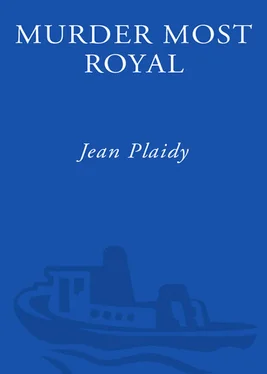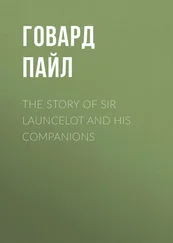Jean Plaidy - Murder Most Royal - The Story of Anne Boleyn and Catherine Howard
Здесь есть возможность читать онлайн «Jean Plaidy - Murder Most Royal - The Story of Anne Boleyn and Catherine Howard» весь текст электронной книги совершенно бесплатно (целиком полную версию без сокращений). В некоторых случаях можно слушать аудио, скачать через торрент в формате fb2 и присутствует краткое содержание. Жанр: Старинная литература, на русском языке. Описание произведения, (предисловие) а так же отзывы посетителей доступны на портале библиотеки ЛибКат.
- Название:Murder Most Royal: The Story of Anne Boleyn and Catherine Howard
- Автор:
- Жанр:
- Год:неизвестен
- ISBN:нет данных
- Рейтинг книги:3 / 5. Голосов: 1
-
Избранное:Добавить в избранное
- Отзывы:
-
Ваша оценка:
- 60
- 1
- 2
- 3
- 4
- 5
Murder Most Royal: The Story of Anne Boleyn and Catherine Howard: краткое содержание, описание и аннотация
Предлагаем к чтению аннотацию, описание, краткое содержание или предисловие (зависит от того, что написал сам автор книги «Murder Most Royal: The Story of Anne Boleyn and Catherine Howard»). Если вы не нашли необходимую информацию о книге — напишите в комментариях, мы постараемся отыскать её.
Murder Most Royal: The Story of Anne Boleyn and Catherine Howard — читать онлайн бесплатно полную книгу (весь текст) целиком
Ниже представлен текст книги, разбитый по страницам. Система сохранения места последней прочитанной страницы, позволяет с удобством читать онлайн бесплатно книгу «Murder Most Royal: The Story of Anne Boleyn and Catherine Howard», без необходимости каждый раз заново искать на чём Вы остановились. Поставьте закладку, и сможете в любой момент перейти на страницу, на которой закончили чтение.
Интервал:
Закладка:
There was another matter too, about which his conscience perturbed him deeply and had done so for some time, in effect ever since he had heard that Katharine could bear no more children. Very deeply was he perturbed on this matter; so deeply that he had spoken of it to his most trusted friends. For all the years he had been married to Katharine there was but one daughter of the union. What could this mean? Why was it that Katharine’s sons died one after the other? Why was it that only one of their offspring—and this a girl—had been allowed to live? There was some deep meaning in this, and Henry thought he had found it. There was assuredly some blight upon his union with Katharine, and what had he done, in the eyes of a righteous God, to deserve this? He knew not...except it be by marrying his brother’s wife. Was it not written in the book of Leviticus that should a man marry his brother’s wife their union should be childless? He had broken off all marital relations with Katharine when the doctors had told him she would never have any more children. Ah! Well he remembered that day; pacing up and down his room in a cold fury. No son for Henry Tudor! A daughter! And why? Why? Then his mind had worked fast and furiously on this matter of a divorce. Exciting possibility it had seemed. Divorces—forbidden by Holy Church on principle—could be obtained for political reasons from the Pope, who was ever ready to please those in high places. I must have an heir! Henry told his conscience. What would happen, should I die and not leave an heir? There is mine and Katharine’s daughter, Mary; but a woman on the throne of England! No! I must have a male heir! Women are not made to rule great countries; posterity will reproach me, an I leave not an heir.
There in his mirror looked back the great man. He saw the huge head, the powerful, glittering shoulders; and this man could not produce a son for England! A short while ago he had had his son by Elizabeth Blount brought to him, and had created him Duke of Richmond, a title which he himself had carried in his youth; that he had done in order to discomfort Katharine. I could have a son, he implied. See! Here is my son. It is you who have failed! And all the tears she shed in secret, and all her prayers, availed her little. She had nothing to give him but a daughter, for—and when he thought of this, the purple veins stood out on Henry’s forehead—she had lied; she had sworn that her marriage with Arthur had never been consummated; she had tricked him, deceived him; this pale, passionless Spanish woman had tricked him into marriage, had placed in jeopardy the Tudor dynasty. Henry was filled with self-righteous anger, for he wanted a divorce and he wanted it for the noblest of reasons...not for himself, but for the house of Tudor; not to establish his manhood and virility in the eyes of his people, not to banish an aging, unattractive wife...not for these things, but because he, who had previously not hesitated to plunge his people into useless war, feared civil war for them; because he lived in sin with one who had never been his wife, having already lived with his brother. This, his conscience—now so beautifully controlled—told Henry. And all these noble thoughts were tinged rose-color by a beautiful girl who was obstinately haughty, whose cruel lips, said, “I will never be your mistress!” But it was not necessary for his conscience to dwell upon that matter as yet, for a king does not raise a humble lady-in-waiting to be his queen, however desirable she may be. No, no! No thought of that had entered his head...not seriously, of course. The girl was there, and it pleased him to think of her in his arms, for such reflections were but natural and manly; and how she was to be got into that position was of small consequence, being a purely personal matter, whereas this great question of divorce was surely an affair of state.
So was his mind active in these matters, and so did he view the reluctance of her whom he desired above all others with a kindly tolerance, like a good hunter contented to stalk awhile, and though the stalking might be arduous, that would be of little account when the great achievement would be his.
Thus was there some truth in the remarks of the Duchess of Norfolk when she had said to her granddaughter, Catherine Howard, that Anne Boleyn was leading the King a merry dance.
In their apartments at the palace Jane Boleyn was quarreling with her husband. He sat there in the window seat, handsome enough to plague her, indifferent enough to infuriate her. He was writing on a scrap of paper, and he was smiling as he composed the lyrics that doubtless his clever sister would set to music, that they might be sung before the King.
“Be silent, Jane,” he said lightly, and it was his very lightness that maddened her, for well she knew that he did not care sufficiently for her even to lose his temper. He was tapping with his foot, smiling, well pleased with his work.
“What matters it,” she demanded bitterly, “whether I speak or am silent? You do not heed which I do.”
“As ever,” said George, “you speak without thought. Were that so, why should I beg you for silence?”
She shrugged her shoulders impatiently.
“Words! Words! You would always have them at your disposal. I hate you. I wish I had never married you!”
“Sentiments, my dear Jane, which it may interest you to know are reciprocated by your most unwilling husband.”
She went over to him, and sat on the window seat.
“George...” she began tearfully.
He sighed. “Since your feelings towards me are so violent, my dear, would it not be wiser if you removed yourself from this seat, or better still from this room? Should you prefer it, of course, I will be the one to go. But you know full well that you followed me hither.”
As he spoke his voice became weary; the pen in his hand moved as though it were bidding him stop this stupid bickering and get on with what was of real moment to him. His foot began to tap.
Angrily she took the quill from him and threw it to the floor.
He sat very still, looking at it, not at her. If she could have roused him to anger, she would have been less angry with him; it was his indifference—it always had been—that galled her.
“I hate you!” she said again.
“Repetition detracts from, rather than adds to vehemence,” he said in his most lightsome tone. “Venom is best expressed briefly; over-statement was ever suspect, dear Jane.”
“ Dear Jane!” she panted. “When have I ever been dear to you?”
“There you ask a question which gallantry might bid me answer one way, truth another.”
He was cruel, and he meant to be cruel; he knew how to hurt her most; he had discovered her to be jealous, possessive and vindictive, and having no love for her he cared nothing for the jealousy, while the possessiveness irked him, and her vindictiveness left him cold; he was careless of himself and reckless as to what harm might come to him.
Her parents had thought it advantageous to link their daughter’s fortunes with those of the Boleyns, which were rising rapidly under the warming rays of royal favor; so she had married, and once married had fallen victim to the Boleyn charm, to that ease of manner, to that dignity, to that cleverness. But what hope had Jane of gaining George’s love? What did she know of the things for which he cared so deeply? He thought her stupid, colorless, illiterate. Why, she wondered, could he not be content to make merry, to laugh at the frivolous matters which pleased her; why could he not enjoy a happy married life with her, have children? But he did not want her, and foolishly she thought that by quarreling, by forcing him to notice her, she might attract him; instead of which she alienated him, wearied him, bored him. They were strange people, thought Jane, these two younger Boleyns; amazingly alike, both possessing in a large degree the power of attracting not only those who were of the same genre as themselves, but those who were completely opposite. Jane believed them both to be cold people; she hated Anne; indeed she had never been so wretched in her life until the return of her sister-in-law; she hated her, not because Anne had been unpleasant to her, for indeed Jane must admit that Anne had in the first instance made efforts to be most sisterly; but she hated Anne because of the influence she had over her brother, because he could give her who was merely his young sister much affection and admiration, while for Jane, his wife who adored him, he had nothing but contempt.
Читать дальшеИнтервал:
Закладка:
Похожие книги на «Murder Most Royal: The Story of Anne Boleyn and Catherine Howard»
Представляем Вашему вниманию похожие книги на «Murder Most Royal: The Story of Anne Boleyn and Catherine Howard» списком для выбора. Мы отобрали схожую по названию и смыслу литературу в надежде предоставить читателям больше вариантов отыскать новые, интересные, ещё непрочитанные произведения.
Обсуждение, отзывы о книге «Murder Most Royal: The Story of Anne Boleyn and Catherine Howard» и просто собственные мнения читателей. Оставьте ваши комментарии, напишите, что Вы думаете о произведении, его смысле или главных героях. Укажите что конкретно понравилось, а что нет, и почему Вы так считаете.












